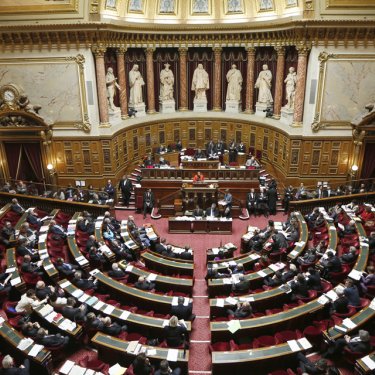The press freedom law threatened by amendments before French senate

Reporters Without Borders (RSF) calls on the French senate to reject four amendments to the “Equality and Citizenship” bill because they would strip the 1881 press freedom law of procedural guarantees that are essential to the protection of media freedom.
Adopted by a senate committee in September, against the government’s recommendations, the four amendments are due to come before the full senate for debate on Tuesday October 4.
They were prompted by a July report by two senators on Internet abuses, which called for “limited changes” to the 1881 law. But the proposed amendments, far from being “limited changes”, would threaten the overall system of protection of press freedom.
It is a complete reversal of logic of the 1881 law that is at stake : Facilitate the prosecution of abuses, instead of protecting the exercise of a fundamental freedom. Combating online social network abuses is legitimate, but not at the expense of provisions that protect journalism.
RSF therefore calls members of the Senate to reject these dangerous amendments which, under the guise of minor adjustments, poses an alarming threat to what is one of the French republic’s great laws.
The first of the four amendments would effectively end the statute of limitations for media offences in cases involving any online content. Under the 1881 press law, a defamation lawsuit must be brought within three months of the time of publication. The amendment says that, for online content, the three months would start “from the date on which the content ceases to be available to the public.” As press articles are almost never removed from news websites, the statute of limitations would cease to apply to press offences.
The second amendment would allow persons who believe they have been defamed or insulted to seek redress outside of the 1881 press law. As things stand, they may only sue under the 1881 law, but this amendment would allow them to bring an alternative or additional action based on common law provisions concerning civil responsibility. Any news report or column with content regarded as negative or pejorative could be the subject of legal proceedings, even when it did not constitute a breach of the 1881 law. The procedural rules available to the defence under the 1881 law would be completely circumvented.
The third amendment would allow a judge to redefine an offence. As things stand, plaintiffs must identify the precise passage of an article they regard as a press offence and must say whether they consider it to be an insult or an offence. A judge cannot redefine an alleged insult as defamation. A journalist who is being sued for libel cannot be found guilty of insult. This provision forces plaintiffs to prepare lawsuits carefully and thereby helps to protect media freedom. The amendment would allow the judge to choose which passages constitute an offence and to define the offence’s nature. It would strengthen the hand of potential plaintiffs at the expense of guarantees for the defence.
Under the fourth of these amendments, a legal action would not automatically end if the plaintiff decided to withdraw it. The prosecutor’s office could decide to pursue the case, showing yet again that the priority is cracking down on abuses of media freedom rather than protecting this freedom.
The authors of these amendments seem to have forgotten that the 1881 press law and its procedural guarantees were specifically designed to protect media freedom by limiting the possibilities of prosecutions, not to facilitate proceedings against those who exercise this freedom or to ensure that plaintiffs obtain redress. RSF therefore emphatically urges senators to reject these amendments.



